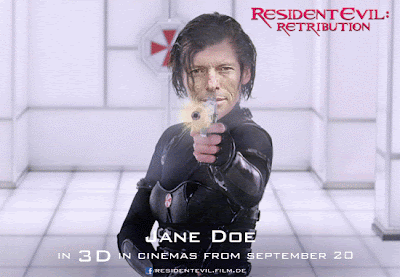After just reading again about the way biographers have spent much effort psychoanalysing CS Lewis from afar, it amuses me greatly to think how much could be imagined into blog posts in the age of the internet, especially when apps let something like this be easily made:

4 comments:
As a young 'un Lewis apparently wrote a takedown of psychoanalysis in literature - amazingly and irritatingly it's not amongst my voluminous collection of Lewis essays. He also relatedly criticised the ad hominem attack, dubbing it 'Bulver', inventing a story to explain the 'Bulverism' fallacy (Bulver sitting at home, remarks on something happening in the world, and his wife replies, 'You just say that because you are a man!')
Anyway a hint of psychoanalysis does seem to creep into his mature works.
Er, what I mean to say is, I suppose he'd be amused at this sort of thing?!???
Possibly.
I am thinking of using the same app to make Sinclair Davidson into a bobbed Lulu singing in front of a backing band...
But back to Lewis - have you read Til We Have Faces? Not exactly psychoanalytical, but from recollection, the main character does realise her inadequacies towards the end. The whole approach, though, is the opposite of modern thought - that you have to work out who you "really" are to be happy. Lewis argues you have to be bashed into something worthy; what you "really" are is just something to be built upon.
I'm sure you know all this, though...
Yes I have read Til We Have Faces! An excellent book! And an interesting example of Lewis' approach to psychoanalysis - he does flirt with ideas about the subconscious, so there's dream sequences and passages in which it's unclear whether the narrator is having a dream or a vision or just continuing on with her life as normal. (That much has pretty much become a standard SF approach to using the subconscious in literature, though Lewis gives much much more weight to a supernatural explanation for dream/hallucination/vision than other SF writers.) But it's interesting how the whole novel is a giant debate really - the narrator begins by challenging 'the Gods' and ends up seeming to argue with herself, so insofar as she starts off not knowing how she's going to end up there's an argument there for different selves. Sort of Freudian but not very.
Was listening to this just the other day, an interesting talk on Lewis - the talk itself is about 50 mins/an hour, the other 15 mins are taken up by Q and A.
More Abbott jokes. Come clean and admit you're a rusted on Labor supporter.
Post a Comment